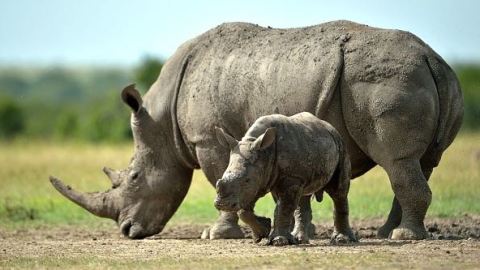All-Female Team Keeps Hunting African Poachers as Cecil Outrage Fades

After the killing of Cecil the lion garnered national media attention, Zimbabwe put a (very) temporary ban on lion, leopard, and elephant hunting. That ban is now lifted and much of the initial outrage — encapsulated by 3 million tweets and 3.6 million Facebook shares — seems to have faded just as quickly.
Thankfully, anti-poaching teams in neighboring South Africa have a longer memory than American Internet trolls. PBS Newshour recently featured one of these groups: the Black Mambas, named after the deadly African snake, a specially trained all-female group that protects illegally hunted animals like rhino and elephant.
The Black Mambas regularly face unpredictable safari animals and heavily armed poachers.
The Black Mambas are stationed at Kruger Park, a massive natural reserve the size of the state of New Jersey. Their homes are elsewhere, in villages that are economically blighted by high unemployment. On their time off, however, the female patrol officers return home and teach school children about the dangers of poaching. They do this despite the fact that illegal hunting represents an opportunity to make money. And with unemployment levels reaching 80 percent in some villages, the women know those opportunities are rare.

Rangers who protect and manage Kruger Park say the pilot program is an incontrovertible success. Still, it is being put at risk by dwindling national budgets to protect wild animals. If Internet outrage automatically translated into public funds, these patrols would be flooded with resources. As it is, the duration and commitment of that outrage has become a more accurate measure of what is available to actually protect wild animals — which is to say, very little.
Image courtesy of iStock / Marie Holding





